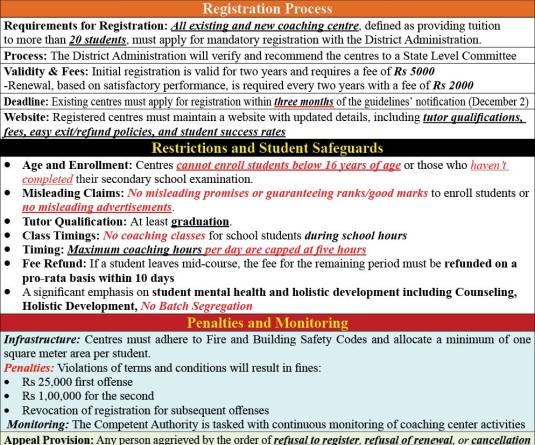
Our Correspondent
Kohima | October 7
Minister for higher & technical education and urban development Dr. Shurhozelie Liezietsu today asserted that evaluation process clearly indicates the advanced thinking of our teaching faculty towards development of qualitative improvement of higher education, for which that has to be taken as a great leap forward.
Speaking at the seminar on evaluation process in Nagaland here today at Kohima College, the minister maintained that evaluation is a comprehensive process of judging and assessing the behavior of a student of his growth and of his all round development and, therefore, evaluation is a system to be organized by the teachers in the first place.
“We may have the best plans for the development of our young generation in various ways. But the successful implementation of such plans depend on the effectiveness and active participation of the implementing agency, i.e the teaching community in our case,” the minister said. Teaching is not merely a profession; but to be taken as a commitment, he asserted and stressed on the need to create sufficient awareness on teachers the need and importance of evaluation in the institutions. Evaluation can also promote the accountability of the teachers, he said adding that the improvement made on the students measure the capability of the teacher. On the other hand, if the students can not show any improvement, it reflects the defective methodology or inefficient performance of the teachers. Evaluation result can serve as a feedback for professional development of the teachers. Since it is a subject matter to be organized by the teachers in the first place, a teacher should update his knowledge and continue to explore new approaches to introduce his topics which are students friendly, he said.
Referring to first formal school in Nagaland started in 1872 by Mary Mead Clark in Ao country and the first school at Kohima in 1882 by C.D. King, he said the primary aim of these schools, part from other aspects of civilization, was to make people learn how to read and write. “From that starting point it took a long journey to reach the present level of education in today’s Nagaland,” the minister said adding that for the past many years our education system was examination oriented which was primarily to issue certificate to the students to enable them to search for job opportunities.
We continued to follow this old system for many years, he said and cited an example that the schools continued to use century old text books without any change till 1980. It was only in 1980, with the establishment of State Council for Educational Research and Training in the state, the state have introduced new text books for the first time in many years for schools in the state, but being the first time, it was criticized badly from many corners, Dr. Liezietsu said adding that even today many schools do not rise above such old system of education.
Referring to the concept of today’s seminar, the minister said “Is it possible to bring about certain optimum degree of standardization in the examination system and in the assessment of students is put in place before grades/marks are awarded to them.”
Stating that this question is important because the focal points of evaluation methods may vary from person to person sometime, he said “I also consider it very important that this seminar should create sufficient awareness among the teaching faculty that today we are on the threshold of a significant change in our educational thinking. The teaching faculty must rise to the occasion to adapt such changes.”
Prof. A.K. Mishra, department of commerce, Nagaland University and Dr. R. K. Behera, academic dean, Patkai Christian College (Autonomous), Chumukedima acted as the resource persons.
The panel of the seminar include Chabainla Jamir, director, Higher & Technical Education, Asano Sekhose, secretary, Nagaland Board of School Education, Dr. P.S. Lorin, president Nagaland College Principals’ Forum, Otova Swu, assistant registrar, examinations, Nagaland University, Dr. P.K. Sarkar, Dy. registrar, academics, Nagaland University, Dr.Behera, academic dean, Patkai Christian College (Autonomous) Chumukedima, Ameu Kire, HoD, department of education, Kohima College, Mutsikhoyo Yhobu, president, Naga Students’ Federation and Bendangnukshi, general secretary, All Nagaland College Students’ Union.
The seminar, which aims to diagnosis of present marking system of north east states universities/ boards vis-a-vis other universities/boards of India, involving comparative statistical study and to educate and train teaching faculty on student friendly marking system, was jointly organized by Kohima College, Nagaland College Principals Forum and All Nagaland College Students’ Union and sponsored by Nagaland College Principal Forum and University Grants Commission, NERO.
Highlights on important types of evaluation
In the meantime, the minister cited three important types of evaluation. First- Summative type of evaluation. Under this, evaluation is done at the end of the year or at the end of the course through formal testing of the pupils achievement and award grade, rank, classify and issue of certificate. A student can be awarded scholarship or selection made for different courses. This is, perhaps, the most commonly used system in our schools even today.
Second- formative evaluation. This is an inbuilt within the process of teaching and learning. This is done in the course of instruction with a view to improve students learning. This system provides feedback to the teacher about the progress of the students regarding the learning gap and the weak points. This gives a chance to the teachers to suggest remedial measures for the improvement of the students.
The minister also stated that this system provides feedback to the teacher regarding the effectiveness of his teaching and also a clue to the effectiveness of the course content. This is a continuous process throughout the course by holding regular tests, class tests, assignments and other classroom activities. Unlike the former system, this system appears like informal and can be undertaken by using multiple techniques by the teachers like observation, oral tests, written test and so on.
“It is necessary that our institutions adopt this system of evaluation as early as possible where the teaching community is capable of implementing the system,” the minister said and at the same time suggested the need to create sufficient awareness by organizing orientation courses, seminars etc. if there is no capable faculty members to adopt the system.
Another important point, he said, the third system, we have to take into consideration is for our teachers to diagnose the underlying causes of students’ weakness and suggest remedial measures. But, he said, it appears this systems always go together with the formative evaluation system with little more emphasis on diagnosis.





